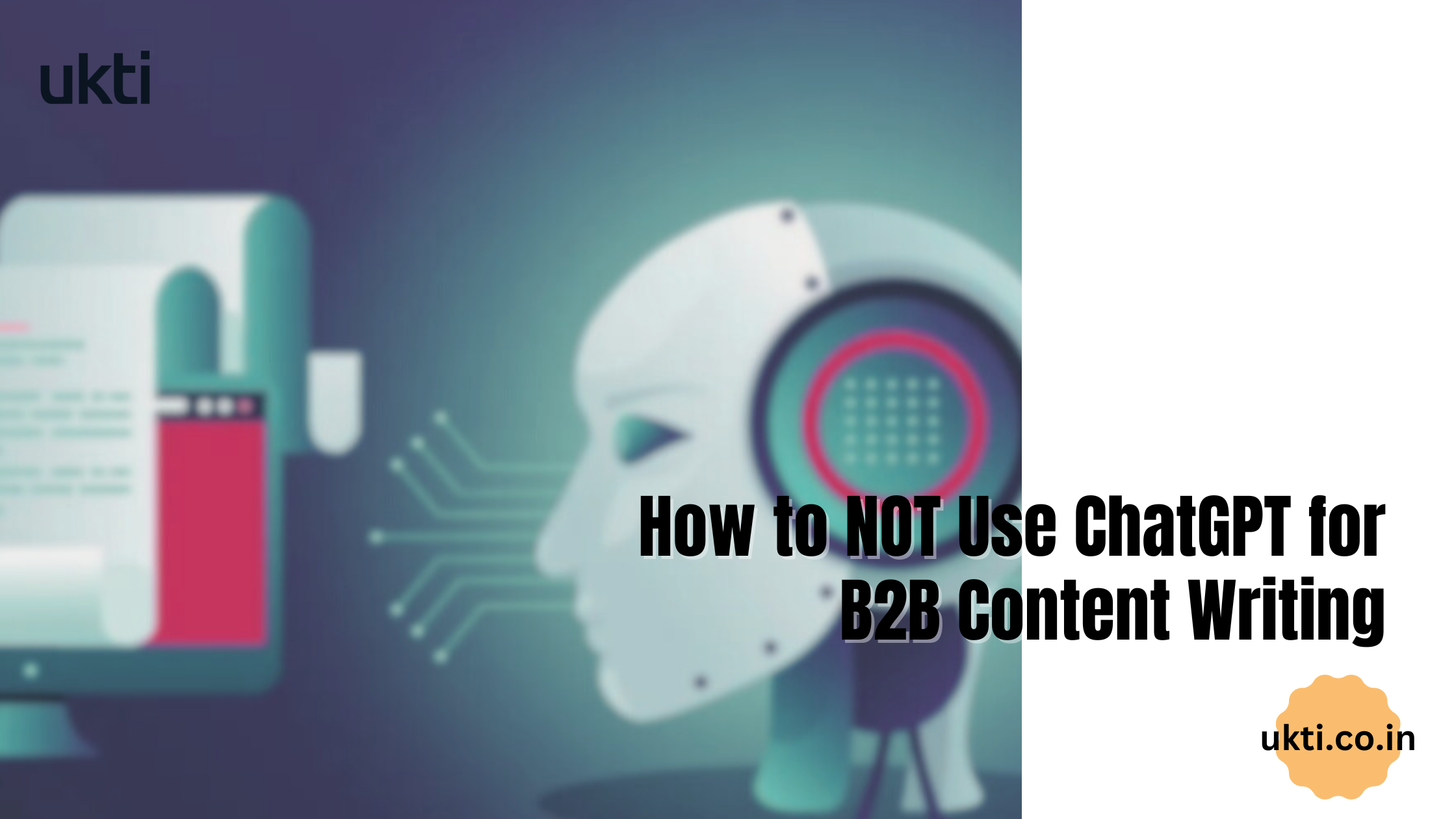The “ChatGPT for content writing” wave continues.
Bloggers, B2B marketing influencers, and content creators cannot get enough of generative AI. In a field where no amount of content seems enough, is ChatGPT the panacea for relentless creation? Well, certain people on the internet think so. They promise that this tool can help you earn more with content, be more productive, fire half of your content team, and even achieve Nirvana in 3 simple steps.
Guess what – they might be lying because ChatGPT remains far from perfect.
Now, if you want to support your content marketing efforts with generative AI, you should absolutely do so. But, you need to be careful about how and where you use it, given the amount of misinformation and “lifehacks” floating around. This holds especially true for writers working in the B2B SaaS space, where your content must be WHOLE, meaning:
W: Well-researched
H: Highly accurate
O: Original
L: Low on fluff, high on value
E: Engaging
So, here is a much-needed NOT-TO-DO list for those who want to use ChatGPT for B2B content writing.
How to NOT Use ChatGPT for B2B Content Writing
#1 Do Not Use It to Write Articles if You Want to Rank High
How many times have you seen thumbnails like this?

It doesn’t take long to realise that all these ChatGPT lifehack videos are basically the writer’s equivalent of 5-minute crafts. You take a prompt, microwave it, and voila! Done!
If only things were so easy.
Here is what ChatGPT does when you ask it to write something:
- It processes what you give it, i.e., the prompt
- It takes information from what it has learnt.
Unlike your content team, this tool doesn’t perform any research of its own. This limitation dampens the quality of the resulting content, even though the result comes quickly.
OpenAI has also hinted that ChatGPT results are “very unreliable” for inputs less than 1,000 characters. This means that your prompts should be detailed enough, to begin with. Even if your prompt is well-written, it does not guarantee that your article will match the quality. And this is even before mentioning the high plagiarism.
Plus, Google and other search engines have been running a tight ship since the advent of generative AI tools. Google’s helpful content update clearly states that it will reject unhelpful and non-valuable AI-generated content written to please the algorithm.
Here is what Google says about it, quite bluntly:
Claims like “Let ChatGPT do the work for you!” are misleading. You will still have to work on your prompts and learn how to refine AI content. Read our blog on How to Use ChatGPT for Marketing Content? for some tips that actually work.
#2 Do Not Post Without Verifying
Always be suspicious of the information you get from ChatGPT. Here is why, straight from the horse’s mouth:

#3 Do Not Replace Google With ChatGPT for B2B Content Writing
ChatGPT is not a search engine. It does provide a quick way to get the information you need without the hassle of navigating through search results, which is why some of us use it for research.
While we don’t blame you, ChatGPT has a lot of limitations and doesn’t quite measure up to the capabilities of a search engine.
Google and other search engines are continuously crawling the web, indexing millions of web pages to provide up-to-date information. ChatGPT does not have direct access to the internet or the ability to crawl and index web pages in real time. Its responses are based on the data it was trained on, which has a cutoff date in September 2021. So, if you search for something that is more recent, this is what happens:

Search engines also use complex algorithms to filter unwanted information, collect relevant information, and then rank these search results. Since an AI-language model does not have the same ranking algorithms as search engines, it might not always prioritise the most relevant information. Now, suppose you are researching the “Most popular account-based marketing trend in 2022.” ChatGPT starts with a confession about its knowledge cutoff and gives you a list of answers the algorithm deems suitable.

Meanwhile, the same prompt, when used as a Google search query, gives you the following:
- A featured snippet which provides a direct answer
- The source of the information
- Suggested questions that are relevant to what your target audience is looking for

#4 Do Not ChatGPT To Summarise Articles
ChatGPT cannot access the internet or read articles published on the internet.
Earlier, it used to make stuff up by using the URL’s parameters as prompts (clever, isn’t it?), as we found out here.
But that glitch seems to have been fixed as of June 2023.

What if we used a chatbot that did have access to the internet? We asked Google BARD to summarise an article that existed on the internet, and it delivered.

When asked to summarise a non-existent webpage, BARD simply declined with a boilerplate response.

BARD works better than ChatGPT here; we’ll give it that. But if you do want to cut down on your research time, just use a dedicated tool like TLDRThis.

#5 Do Not Let ChatGPT Content Stay In Your Final Draft
If you can’t let go of the bad habit of using generative AI at some point in your writing process, you are not alone. But, under no circumstances should you leave ChatGPT’s responses as is in your final draft. Here is why:
1. Anyone who is familiar with ChatGPT can instantly detect its tone, the common phrases it uses, and its writing style. If you send over your final draft rife with sentences like “However, it is important to note that […]”, the client will think you are lazy. They are paying for human writers, after all!
2. Search engines can detect AI content, and while they do accept content that is helpful to the user, they may not always look upon it favourably. Human-generated content is always more likely to be chosen over auto-generated content. This is hinted at by Google’s spam guidelines.
Want to Scale B2B Content Creation Without AI?
Hire a good old team of expert writers instead. At Ukti Content Solutions, we help to grow B2B companies drive growth with content marketing. Check us out on LinkedIn to learn more about what we do, and book your free call.

